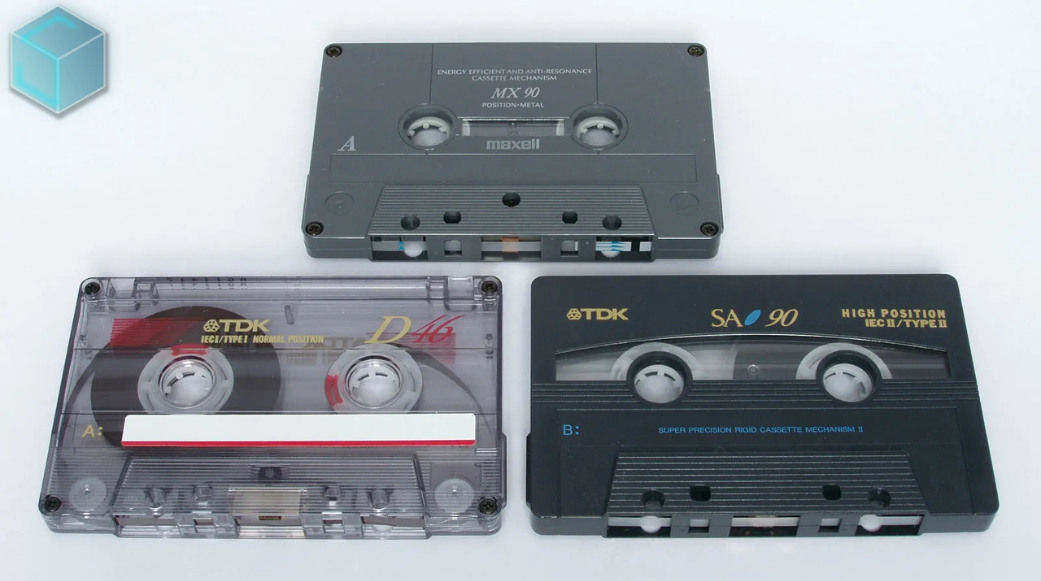
October 23, 2025
Discover how Mix Master strengthens your brain just like an instrument - training focus, creativity, and emotional intelligence through the science of sound.
Read more.png)
September 8, 2025
Tools like Suno are now powerful enough to generate melodies, lyrics, and even full songs in seconds. That’s exciting—and controversial. Just ask Timbaland. Recently, he came under fire..
Read more
August 23, 2025
The 1980s and 1990s analog music medium known as cassette cassettes is experiencing an unanticipated comeback, with Gen Z spearheading the trend. Taylor Swift, who included cassettes in the release...
Read more
August 23, 2025
This week's most notable headline: Doja Cat's erotically charged, '80s-inspired music video, "Jealous Type," is dominating social media feeds and cultural discourse, marking her most daring...
Read more
August 23, 2025
J-hope and GloRilla's "Killin' It Girl," a spectacular blend of K-pop flare and shameless hip-hop heat that has taken the world by storm, is this week's winner of the Best Collaboration of Summer...
Read more
August 23, 2025
Carly Rae Jepsen is giving fans the ultimate gift for the 10th anniversary of her critically adored album Emotion: a special edition featuring four never-before-heard tracks and two fresh remixes...
Read more
August 23, 2025
The wait is over, ARMY! BTS is officially back together and balancing work and play in their first moments of reunion after completing mandatory military service. J-Hope sent fans into a frenzy...
Read more
August 23, 2025
Christian music stepped outside of its quiet comfort zone in 2025. "Hard Fought Hallelujah," a worship song by Brandon Lake, went platinum, sold out festival stages, and exploded from churches to...
Read more
August 23, 2025
In late July 2025, Christian artist Forrest Frank (of Surfaces, now a solo juggernaut in faith-pop) posted from a hospital bed: he’d fractured his L3 and L4 vertebrae in a skateboarding accident...
Read more
August 21, 2025
On September 16, the masked metal phenomenon Sleep Token will embark on their 2025 "Even In Arcadia Tour" across North America. The 18-show tour, which includes a huge date at Brooklyn's Barclays...
Read more
August 21, 2025
Due to a line dance that went viral and won over fans' hearts both inside and outside of the United States, 22-year-old Tre Little's song "Boots on the Ground" has become a cultural sensation this...
Read more
August 21, 2025
In addition to preparing for her next album, The Life of a Showgirl, Taylor Swift is reviving the physical medium this week by putting her songs on cassette tapes. This sentimental action...
Read more.png)
In modern music production, one of the most common challenges is the clash of frequencies between instruments. For example, bass guitars and drum kits often compete for space in the lower end of the frequency spectrum, leading to a muddy mix. Traditional sidechain compression is a popular solution, but it typically reduces the entire sound of one instrument rather than targeting the specific frequency causing the issue. This is where multiband compression sidechaining comes into play.
Instruments like bass guitars and kick drums occupy similar frequency ranges, particularly in the low end (usually between 40Hz and 150Hz). When these elements overlap, it can result in a lack of clarity. Traditional sidechain compression helps by lowering the volume of one sound when the other is present, but it affects the entire frequency range of the instrument. Multiband compression allows for more precision by only affecting the clashing frequencies.
Multiband compression sidechaining gives you the flexibility to address frequency-specific issues while leaving the rest of the instrument untouched. Here's a step-by-step guide on how to apply it in your mix:
An excellent example of an artist using multiband compression sidechaining effectively is Skrillex. In his genre of electronic dance music, where bass and drums are central to the mix, frequency clashes can easily occur. Skrillex often layers multiple bass sounds, and through the use of multiband compression sidechaining, he ensures that these layers complement rather than compete with his drums. By carefully isolating and controlling specific frequency bands, he maintains both the punch of his drums and the power of his bass without compromising either.
The benefit of using multiband compression sidechaining is its precision. Rather than reducing the entire volume of an instrument, it only affects the problematic frequency bands. This approach ensures that other important characteristics of the instrument remain intact, resulting in a cleaner, more defined mix.
Multiband compression sidechaining is an essential tool for producers looking to achieve a more balanced mix. By focusing on specific frequency bands rather than the entire instrument, you can prevent clashes and maintain clarity. Famous producers like Skrillex rely on this technique to keep their mixes clean and impactful. Incorporating this method into your own production workflow can elevate the quality of your mixes, ensuring that each element stands out clearly while still fitting together cohesively.